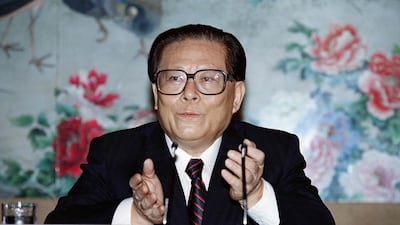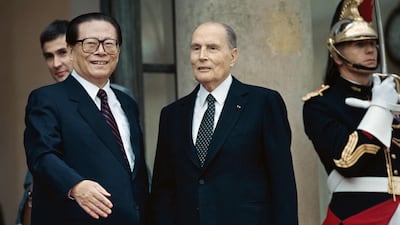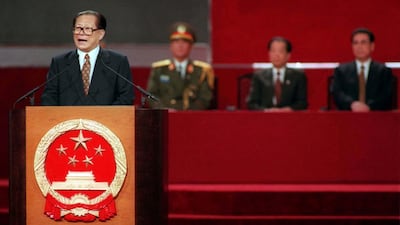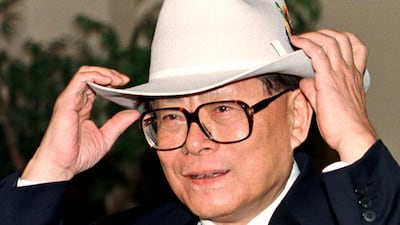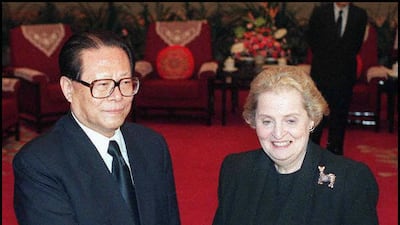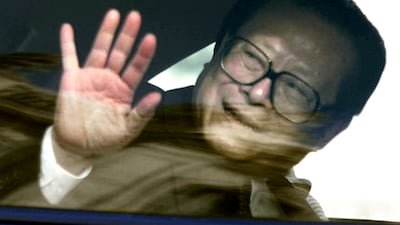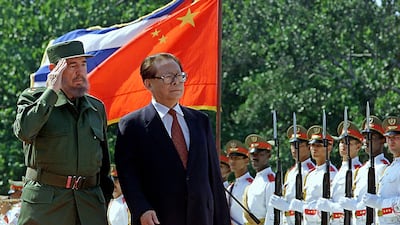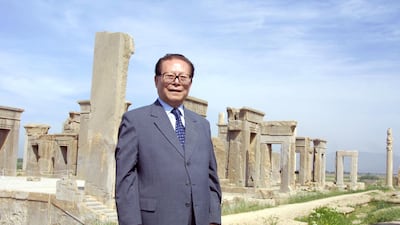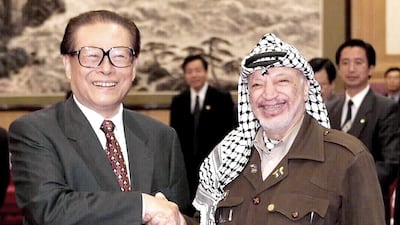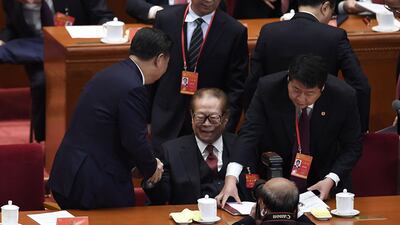Former Chinese president Jiang Zemin has died at the age of 96, state media confirmed on Wednesday.
He died in Shanghai of leukemia and multiple organ failure at 12.13pm local time, Xinhua news agency reported.
Mr Jiang took power after the suppression of the Tiananmen Square protests that rocked the country in 1989, serving as general secretary of the communist party from 1989 to 2002 and then as Chinese president from 1993 to 2003.
He was last seen publicly in October 2019.
Rumours of ill health arose after he missed a party congress in October, where current President Xi Jinping secured a third term as leader.
During the decade before Mr Jiang's rule China emerged as a major player in global trade after the market reforms of Deng Xiaoping, but it was Mr Jiang who presided over China's emergence as an economic powerhouse.
Born in Yangzhou in August 1926, he also presided over the return of Hong Kong from British rule in 1997 and Beijing’s entry into the World Trade Organisation in 2001.
He led China out of international isolation after the Tiananmen Square protests, but was criticised for his heavy-handed crackdown on government critics and the Falun Gong spiritual group.

Mr Jiang managed various diplomatic crises with the US after the 1999 Nato bombing of Beijing's embassy in Belgrade and the 2001 collision between a Chinese fighter jet and a US spy plane in Chinese airspace, which plunged bilateral ties to their lowest ebb since diplomatic contact was re-established in 1971.
"He had a personal style that was sometimes a bit extravagant. I think he was more of a human being than Hu Jintao," Jean Pierre Cabestan, a politics professor at Hong Kong's Baptist University told Reuters, referring to Mr Jiang's successor.
Despite rumours that he wanted to cling to power, he retired as party chief in 2002, handing the reins to Mr Hu in the country's first peaceful leadership transition since the 1949 revolution.
He gave up his last official title as chairman of the central military commission in 2004 but remained a force behind the scenes in the wrangling that led to the rise of President Xi, who took power in 2012.
Agencies contributed to this report.
